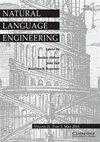Automated hate speech detection and span extraction in underground hacking and extremist forums
IF 1.9
3区 计算机科学
Q3 COMPUTER SCIENCE, ARTIFICIAL INTELLIGENCE
引用次数: 3
Abstract
Abstract Hate speech is any kind of communication that attacks a person or a group based on their characteristics, such as gender, religion and race. Due to the availability of online platforms where people can express their (hateful) opinions, the amount of hate speech is steadily increasing that often leads to offline hate crimes. This paper focuses on understanding and detecting hate speech in underground hacking and extremist forums where cybercriminals and extremists, respectively, communicate with each other, and some of them are associated with criminal activity. Moreover, due to the lengthy posts, it would be beneficial to identify the specific span of text containing hateful content in order to assist site moderators with the removal of hate speech. This paper describes a hate speech dataset composed of posts extracted from HackForums, an online hacking forum, and Stormfront and Incels.co, two extremist forums. We combined our dataset with a Twitter hate speech dataset to train a multi-platform classifier. Our evaluation shows that a classifier trained on multiple sources of data does not always improve the performance compared to a mono-platform classifier. Finally, this is the first work on extracting hate speech spans from longer texts. The paper fine-tunes BERT (Bidirectional Encoder Representations from Transformers) and adopts two approaches – span prediction and sequence labelling. Both approaches successfully extract hateful spans and achieve an F1-score of at least 69%.自动仇恨言论检测和跨度提取地下黑客和极端主义论坛
仇恨言论是基于性别、宗教和种族等特征攻击个人或群体的任何一种传播方式。由于人们可以在网络平台上表达自己的(仇恨)观点,仇恨言论的数量正在稳步增加,这往往导致线下仇恨犯罪。本文的重点是理解和检测地下黑客和极端主义论坛中的仇恨言论,这些论坛分别是网络犯罪分子和极端主义分子相互交流的地方,其中一些与犯罪活动有关。此外,由于帖子很长,确定包含仇恨内容的文本的具体跨度将是有益的,以协助网站版主删除仇恨言论。本文描述了一个仇恨言论数据集,该数据集由从HackForums(一个在线黑客论坛)以及Stormfront和Incels中提取的帖子组成。两个极端主义论坛。我们将我们的数据集与Twitter的仇恨言论数据集结合起来训练一个多平台分类器。我们的评估表明,与单平台分类器相比,在多个数据源上训练的分类器并不总能提高性能。最后,这是第一个从较长的文本中提取仇恨言论跨度的工作。本文对BERT (Bidirectional Encoder Representations from Transformers)进行了微调,采用了跨度预测和序列标记两种方法。两种方法都成功地提取了可恨跨度,并获得了至少69%的f1分数。
本文章由计算机程序翻译,如有差异,请以英文原文为准。
求助全文
约1分钟内获得全文
求助全文
来源期刊

Natural Language Engineering
COMPUTER SCIENCE, ARTIFICIAL INTELLIGENCE-
CiteScore
5.90
自引率
12.00%
发文量
60
审稿时长
>12 weeks
期刊介绍:
Natural Language Engineering meets the needs of professionals and researchers working in all areas of computerised language processing, whether from the perspective of theoretical or descriptive linguistics, lexicology, computer science or engineering. Its aim is to bridge the gap between traditional computational linguistics research and the implementation of practical applications with potential real-world use. As well as publishing research articles on a broad range of topics - from text analysis, machine translation, information retrieval and speech analysis and generation to integrated systems and multi modal interfaces - it also publishes special issues on specific areas and technologies within these topics, an industry watch column and book reviews.
 求助内容:
求助内容: 应助结果提醒方式:
应助结果提醒方式:


